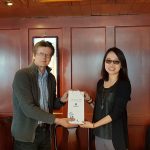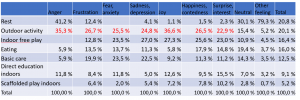 The results of Progressive Feedback were presented in Hangzhou CECECin early education conference 3.12.2019. In the results we saw that the weather is a challenge for the toddlers and their educators. In Finland, especially cold winter months require winter clothes, which may restrict children’s movement and activities. On the other hand, outdoors highlights the importance of peer contacts and movement. In the table the distribution of the toddlers emotions is presented. In outdoor activities, children have a lot of positive emotions, but the amount of negative emotions is also higher than in other activities. The toddlers need Outdoor activities could include developing different types of sun loungers, heaters, shelters, heated sandboxes, and intermediate spaces for flexible outdoor use throughout the day. During summer, for example, shade and water play need attention.
The results of Progressive Feedback were presented in Hangzhou CECECin early education conference 3.12.2019. In the results we saw that the weather is a challenge for the toddlers and their educators. In Finland, especially cold winter months require winter clothes, which may restrict children’s movement and activities. On the other hand, outdoors highlights the importance of peer contacts and movement. In the table the distribution of the toddlers emotions is presented. In outdoor activities, children have a lot of positive emotions, but the amount of negative emotions is also higher than in other activities. The toddlers need Outdoor activities could include developing different types of sun loungers, heaters, shelters, heated sandboxes, and intermediate spaces for flexible outdoor use throughout the day. During summer, for example, shade and water play need attention.
Category Archives: China
Is child-centered pedagogy really good for children’s learning?
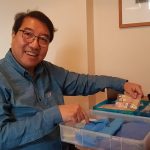 Professor James Ko from the Education University of Hong Kong is visiting Finland. We will test children’s self-management and pre-academic skills both in Finland and Hong Kong. Then we will observe children’s activities and teachers’ activities. in the follow-up study we will test the children again, seeking to find out what kind of learning environment and teaching style is best for children’s learning. This will help teachers, policymakers and parents understand how effective teaching in two contrastive contexts longitudinally affects children’s learning and their influences at multiple levels of surrounding contexts (classroom, school, education system). We will:
Professor James Ko from the Education University of Hong Kong is visiting Finland. We will test children’s self-management and pre-academic skills both in Finland and Hong Kong. Then we will observe children’s activities and teachers’ activities. in the follow-up study we will test the children again, seeking to find out what kind of learning environment and teaching style is best for children’s learning. This will help teachers, policymakers and parents understand how effective teaching in two contrastive contexts longitudinally affects children’s learning and their influences at multiple levels of surrounding contexts (classroom, school, education system). We will:
1. Examine the relationships between effective teaching and childhood development:
a) Whether children can learn more from teachers who show more positive teacher-student interactions;
b) Whether child-led, play-based teaching and teacher-led, academically-focused teaching approach have different impacts;
c) Whether a dominant type of teaching approach results in different learning outcomes;
2. To examine a) whether the above relationships change or strengthen over time (following up across three school years) and b) whether there are individual differences.
In the picture, you can see James presenting the pre-academic test. In our project we have already found several key indicators for a deep zone of proximal development. This is the first time we study the longitudinal effect of that zone!
Collaboration with Fun Learning in China
 Kindergarten heads, teachers and parents have the liberty to look at the data from a cross national perspective, compare it with science of learning as well as ECD goals, and decide the best way forward.The Orientation Project provides practical and meaningful instruments for researching, monitoring and evaluating early learning. We have started collaboration with the Fun Learning approach, starting in China.
Kindergarten heads, teachers and parents have the liberty to look at the data from a cross national perspective, compare it with science of learning as well as ECD goals, and decide the best way forward.The Orientation Project provides practical and meaningful instruments for researching, monitoring and evaluating early learning. We have started collaboration with the Fun Learning approach, starting in China.
Chinese Teacher Education cooperation
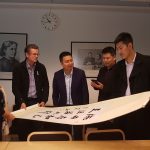 A dedicated group of Early Education experts from China visited University of Helsinki and Finland 26-30 September. The visitors included Dong Li (China next generation education foundation early childhood education federation), Gavin (CEO of the Lead Baby Education Group), Jackie (Education director of Lead Baby Education Group), Ye Fei (China Early Childhood Education Weekly, Founder and chief editor, Blue sky club, Founder), Yuan Shenggang (online Education platform, Founder) & Liu Hong (CEO of the Beijing Tayaseine Education Ltd., Co). We work for cooperation in teacher education and development of Chinese early education. The delegation visited also Nummenkylä daycare center to have a first hand experience on Progressive feedback.
A dedicated group of Early Education experts from China visited University of Helsinki and Finland 26-30 September. The visitors included Dong Li (China next generation education foundation early childhood education federation), Gavin (CEO of the Lead Baby Education Group), Jackie (Education director of Lead Baby Education Group), Ye Fei (China Early Childhood Education Weekly, Founder and chief editor, Blue sky club, Founder), Yuan Shenggang (online Education platform, Founder) & Liu Hong (CEO of the Beijing Tayaseine Education Ltd., Co). We work for cooperation in teacher education and development of Chinese early education. The delegation visited also Nummenkylä daycare center to have a first hand experience on Progressive feedback.
DO
Finland & China in WPC conference, Beijing
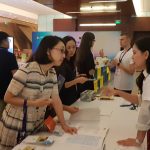 7-9 July, at the WPC World Principal Conference, Beijing China, more than 3000 principals were focused on enhancing children’s well-being. We had our own booth in the conference. In the picture, Tuomas Sarkkinen and his team are discussing possibilities of participating in the Chinese PF. In addition to the booth, our contributions included keynotes and presentations. Presenters introducing Finnish early education were (in alphbetical order) Steve Ho, Kari Kasanen, Nikke Keskinen, Raija Laine, Mikko Mäkelä, Kati Rintakorpi, Jyrki Reunamo, Kirsi Tarkka, Taru Terho and Petra Varttinen.
7-9 July, at the WPC World Principal Conference, Beijing China, more than 3000 principals were focused on enhancing children’s well-being. We had our own booth in the conference. In the picture, Tuomas Sarkkinen and his team are discussing possibilities of participating in the Chinese PF. In addition to the booth, our contributions included keynotes and presentations. Presenters introducing Finnish early education were (in alphbetical order) Steve Ho, Kari Kasanen, Nikke Keskinen, Raija Laine, Mikko Mäkelä, Kati Rintakorpi, Jyrki Reunamo, Kirsi Tarkka, Taru Terho and Petra Varttinen.
PF & dSign
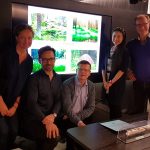 Vertti Kivi (dSign Vertti Kivi & Co) has created an interior design for a harmonious, exiting and playful kindergarten for our project. The design has a great variety of surroundings and moods inspired by Finnish forest. Especially inspiring are the adaptable (automatic, programmable, creative or manual) lighting designs, for example, sunrise, noon, sunset, moonlight and starlight. You can see world in a different light. In the end, all we ever see in this world is light.
Vertti Kivi (dSign Vertti Kivi & Co) has created an interior design for a harmonious, exiting and playful kindergarten for our project. The design has a great variety of surroundings and moods inspired by Finnish forest. Especially inspiring are the adaptable (automatic, programmable, creative or manual) lighting designs, for example, sunrise, noon, sunset, moonlight and starlight. You can see world in a different light. In the end, all we ever see in this world is light.
Beijing Normal University
PF in China
Pr ogressive Feedback (PF) cooperation between Finland and China is getting concrete. On Thursday 26 April 2018, In the Chinese Ministry of Education, Department of Ethnic Minorities, we agreed to conduct Chinese early education enhancement research & development project based on Finnish PF. We will have close working research teams in Finland and China. We’ll have 200 observers trained by Finnish experts to get a valid picture of Chinese early education and to give guidelines for future development. The picture is from the successful meeting at the Ministry. From the left is Tibet representant Sherab Songmo, Jouni Veijalainen, Jyrki Reunamo, the Director of the National Education Development Center Yan Guo, mr Han, the Director of the Center for Quality Monitoring and Research Xianqiang Zhou and Frank Wen.
ogressive Feedback (PF) cooperation between Finland and China is getting concrete. On Thursday 26 April 2018, In the Chinese Ministry of Education, Department of Ethnic Minorities, we agreed to conduct Chinese early education enhancement research & development project based on Finnish PF. We will have close working research teams in Finland and China. We’ll have 200 observers trained by Finnish experts to get a valid picture of Chinese early education and to give guidelines for future development. The picture is from the successful meeting at the Ministry. From the left is Tibet representant Sherab Songmo, Jouni Veijalainen, Jyrki Reunamo, the Director of the National Education Development Center Yan Guo, mr Han, the Director of the Center for Quality Monitoring and Research Xianqiang Zhou and Frank Wen.
